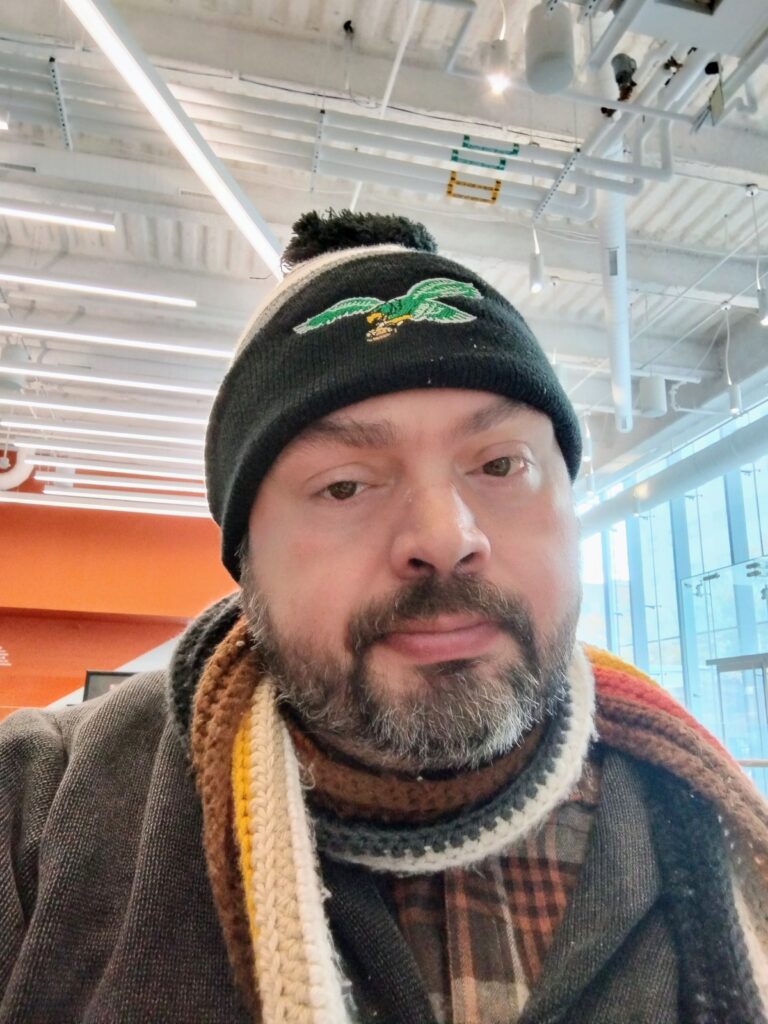
04 Sep Local Filmmakers Shine in Showcase from IPMF
BY M. SHANE JENKINS
Independence Public Media Foundation (IPMF) in conjunction with cinéSPEAK, will present their 3rd Annual Local Filmmaker Showcase on Wednesday, September 11, 2024. IPMF provides vital funding to community organizers, filmmakers, grassroots organizations, and others working on film and media projects. They prioritize Philadelphia-based media makers and creators from marginalized groups.
“The showcase aims to celebrate and share IPMF grantee films that highlight the complex experiences of diverse and marginalized communities through a lens of care and compassion,” says Enni Aigbomian, Communications and Events Manager for IPMF.
The program, titled “Las Raices: Stories of Identity, Belonging and Freedom,” celebrates diversity and individuality, and the importance of staying connected to one’s roots as a means to ultimate freedom. The evening will feature works from six local filmmakers: (No Sé) The Seed of Love es Paz is a “cinematographic poem” made by students ages 9-15 in a workshop about identity; No Way Home is a documentary produced by Amistad Law Project about a Philadelphian grappling with the effects of gun violence and mass incarceration; and Fury, an in-progress scene teaser from the experimental dance film Eros: Fragile as it is Free, explores postpartum emotional experiences.
Another film comes from director Gabriella Hsu and examines the evolving friendship of a pair of Chinese American students. How to Play Anqi is a stylish and poignant look at the relationship between two roommates as one prepares to graduate college and move on with her life. Hsu uses the board game anqi as a metaphor for the fluctuations of close friendships. The filmmaker was inspired by the game’s unique combination of strategy and luck.
In conversations that seamlessly weave from Mandarin to English, Shun and Jun recall their more carefree days playing anqi during the inevitable lead up to Shun picking up her graduation cap and walking out the door one final time. Hsu shows the passage of time through sepia-toned flashbacks of the women playing their favorite game contrasted with the more somber-hued palette of the present. The push and pull of the gameplay is mirrored in the changing dynamics of the women’s friendship, as Jun struggles to not be left behind.
“I made this in my last semester of college [when] I was getting ready to say goodbye to a lot of my friends,” Hsu says. “In a way, it’s a goodbye letter to both my mom and my friends as we move forward to navigate this new part of our lives.”
Hsu goes on to say, “I hope the audience feels seen as they see certain parts of Shun and Jun’s friendship as their own. And that they don’t feel alone as we all navigate the changes in our friendships through the transitions of life.”
She is excited to have How to Play Anqi screen as part of the IPMF showcase at Asian Arts Initiative. “I can’t imagine a better home for my film to be shown at, and I’m looking forward to everyone’s thoughts,” Hsu says.
Christina DiPasquale’s Barrio Television also examines the past and its ripple effects on the future. The film is an excerpt from a feature-length documentary-in-progress, and explores the day in 1972 that Puerto Rican activists interrupted a PBS pledge drive at New York’s public television station to demand the creation of a program that showed Latino people in a positive light. Through archival footage of the event and interviews with participants, DiPasquale brings a bold and inspiring message about grassroots activism to the screen.
The program that resulted from the protest, Realidades, told the true stories of Latinos, ranging from artists and musicians to farmers and teachers. These segments that displayed Hispanic culture were an inspiration to audiences that hadn’t seen people who looked like them broadcast on American television before. Some of the interviewees recall the pride and joy they experienced seeing Latin names listed as the directors and crew of a TV show. The program ran from 1975 to 1977 and was the first bilingual public affairs series for Latinos to air nationally.
DiPasquale says that she feels a strong connection to Realidades, even though it had been off the air long before she was growing up. “It felt like finding a missing piece of myself,” she says. “I saw in it so many things that I had been searching for—stories, connections, images that reflected my own experience of Latinidad, things I never saw in school or the media.”
The bravery displayed by the activists entering WNET despite a strong police presence outside the station will resonate with many of today’s activists who put their own safety at risk to stand up for justice. DiPasquale says that Barrio Television is “a call to action, urging viewers to recognize the transformative power of media when it is reimagined and reclaimed by communities of color.”
Recognizing this transformative power of media is an essential part of IPMF’s purpose. DiPasquale shares, “The IPMF Local Filmmakers Showcase, with the support of the Asian Arts Initiative and cinéSPEAK, is a powerful affirmation of our mission to reclaim storytelling spaces and elevate the voices of our communities.”
Also screening work in the showcase is Tshay, a Jamaican American filmmaker who has worked in a variety of genres. Tell Me When You Get Home. is a compelling and fantastical animated short about a 15-year-old Caribbean girl named Honest Cardamom who is navigating the death of her mother. Tshay wrote the film in the wake of her own sister’s murder. “I needed to understand how I could keep going without someone who was so important to me, and how to reshape this traumatic memory so that I could move forward with living,” Tshay says.
Incorporating an animation style inspired by some of her favorite cartoons such as Steven Universe and Hey Arnold! Tshay depicts Honest learning about her mother from an uncle during a rousing reggae party at her house. “The movie is about the feeling of being part of a Caribbean family, namely in a party setting, and exploring the norms, attitudes, and folklore of the community through the lens of our protagonist,” Tshay says.
With the striking animation, booming soundtrack, and its universal themes of love and loss, Tshay hopes that her film takes viewers on a “wild ride,” adding, “I hope that it’s a reminder of how precious our close connections are.”
By providing much needed funding for these three projects and many others, IPMF plays an important role in helping local filmmakers launch their careers. “They have been one of the largest supporters of my work, and they really care about artists in Philly,” Tshay says.
Make sure to attend this evening of groundbreaking work from visionary Philadelphia filmmakers. Las Raices: Stories of Identity, Belonging and Freedom starts at 6pm on Wednesday, September 11th, at Asian Arts Initiative. The films will be followed by a Q&A with the filmmakers, moderated by cinéSPEAK Journal contributor Gabe Castro.
Featured Image: Still from Tell Me When You Get Home. Courtesy of Tshay.

M. Shane Jenkins is a children’s novelist and musician, as well as a disability and LGBTQ advocate. He lives in West Philadelphia and has a BA in film from Temple University.

Sorry, the comment form is closed at this time.